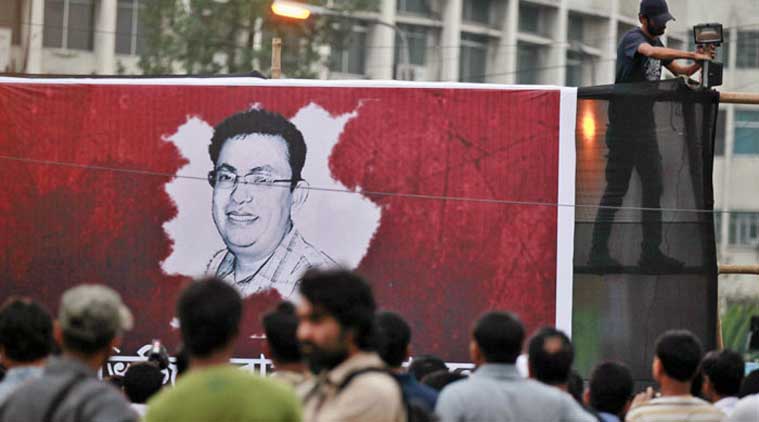By: Mahfuz Anam
It was a murder announced well in advance. An important suspect, Shafiur Rahman Farabi, now in custody, told his Facebook friends a year ago — on February 9, 2014 — that Avijit Roy lived in the US, “So it won’t be possible to kill him now. He can be killed when he returns.” He then followed up with Avijit’s family photos and his US address and asked his friends regarding Avijit’s whereabouts. Farabi was arrested two years ago and released on bail within six months. He immediately resumed his incitement to kill all bloggers who supported “free thought”. In a post soon after his release, he wrote, “To me, atheists are nothing but insects, and it is best for insects to die.”
Farabi and Avijit had debated issues of free thought and religious fundamentalism on social media. It soon turned into death threats from Farabi, and Avijit stopped all communication. Then Farabi started sending him death threats by text messages. It was against this backdrop that Avijit decided to visit Bangladesh with his wife. His visit was more than a family affair, as he planned to launch three of his latest books at the country’s biggest book fair, held to commemorate the Language Movement of 1952, now celebrated as the International Mother Language Day on February 21. He underestimated the militants’ threats and paid with his life.
In 2004, one of Bangladesh’s most famous writers, Humayun Azad, was brutally attacked in a similar fashion. He survived the attack, but died later in Germany. On February 15, 2013, there was the murder of blogger Rajib Haider, following the first ever social media-triggered student uprising in favour of the war crimes trial.
According to the police, there are 12 extremist Islamist outfits currently banned. These are: Harkat-ul-Jihad Islami (HuJI) Bangladesh, Jamaat-ul-Mujahideen Bangladesh (JMB), Jagrata Muslim Janata Bangladesh (JMJB), Shahadat-e-al Haqima (SAH), Hizbut Touhid, Islami Samaj, Ulema Anjuman al Baiyinaat, Hizb-ut Tahrir, Islamic Democratic Party, Touhid Trust, Tamir ud-Deen and Alla’r Dal. These groups operate under different names at different times. There are at least a dozen other groups of smaller following that have not yet been banned but surface from time to time.
The government has succeeded in arresting a significant number of extremists. Yet, according to police estimates, 270 of them remain at large and are wanted in different cases. Between 2008 and now, 478 JMB men have been tried in 177 cases. Of them, 51 top leaders of the banned outfits have been sentenced to death, 178 given life terms and 245 jailed for different terms.
Extremism gained a significant foothold in Bangladesh in the early 2000s. Its most dramatic face was called “Bangla Bhai”, who formed a vigilante group, carrying out “death sentences” and hanging corpses from trees to create fear. As an operational commander of the JMB, continued…
Source: Indianexpress











